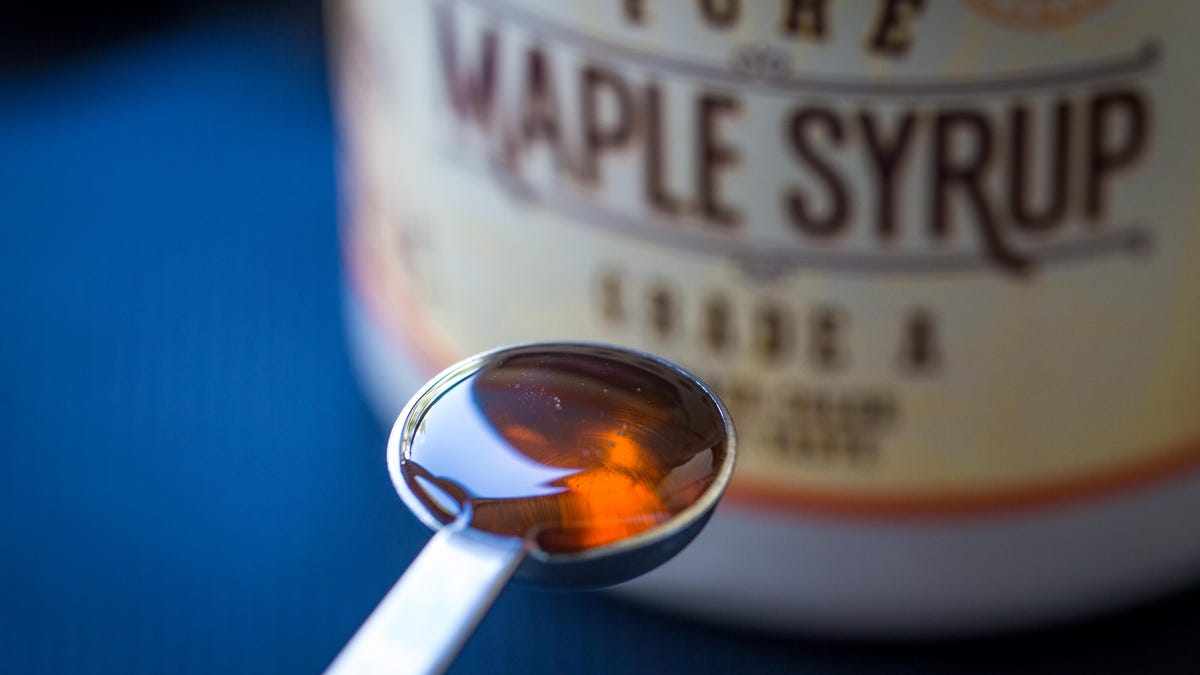Good sugar vs. bad sugar, what's the difference?
Agave. Honey. Maple syrup. All are touted as "better" alternatives to white cane sugar, but are any of them actually good for you?

Few foods have a worse reputation in the wellness and nutrition world than sugar. The US Office of Disease Prevention and the World Health Organization say you should get no more than 10% of your daily calories from added sugar each day -- and even better is limiting added sugar to 25 grams (or six teaspoons) in total. But, is it really fair to label all sugar as the same? And what counts as "added sugar" exactly?
Some people will tell you sugar is sugar no matter what, while others argue some forms of sugar are better and yes, even healthier than others. When you look at the research, there is no evidence to clearly state that diets with naturally occurring sugar are harmful for your health.
Below, Jayne Williams, a certified nutritional consultant and clinical nutrition graduate student weighs in to shed some light on the different types of sugar and how they affect your health.
Read more: Sugar vs. artificial sweeteners -- which is healthier? It's complicated
The different types of sugars, explained
Added sugar is any type of sugar that you (or a manufacturer) add to food -- whether that is coconut sugar, cane sugar, maple syrup, honey or agave nectar. But this is when the real grey area of the sugar debate appears, because each of these sugars are different in terms of how they're made or found.
When it comes to sugar in food there are a few important factors to consider: If there is added sugar and the sugar comes from a natural source, or is found in a whole food. For example, fruit is a whole, natural food and contains sugar in its natural form. It also contains a variety of other vitamins, minerals and nutrients.
The World Health Organization notes in their guidelines that when they refer to sugar intake suggestions, the 10% limit doesn't refer to sugar that's found naturally in food like fruit or milk. So the first thing to distinguish is added sugar versus the naturally occurring type.
"I like to categorize sugar in three categories: Natural, modified natural sugar and fake sugar. Then we can start to differentiate between what can have added benefits and what can just downright cause issues in our body," Williams says.
Natural sugars
Foods that naturally contain sugar aren't the same as processed foods with added sugars. Foods that contain natural sugar likely have less sugar than a processed snack, and added benefits from vitamins, minerals or fiber, for example. Added sugars such as high fructose corn syrup are often more processed forms of sugar as well.
Fruit contains a form of sugar called fructose.
All sugar affects your body by raising your blood sugar and insulin hormones when you consume it. However, it's likely that the foods you eat that naturally contain sugar have far less than processed foods and also contain fiber, vitamins and minerals.
"Natural sugar, like the sugar found in whole food like fruits, is definitely part of a healthy diet for most people. While fruits do contain low levels of fructose, which is a sugar, the overall nutritional value of a piece of whole fruit with all the vitamins, fiber and nutrients is well worth including in a healthy diet," Williams says. Natural-occurring fructose in fruits is bound to fiber, which helps slow down how fast your body absorbs that sugar.
Fructose is not to be confused with high fructose corn syrup. "Fructose is much sweeter than glucose so it's most often used as a sweetener in processed foods. This type of fructose is actually manufactured and we know it as high fructose corn syrup. This type of chemical-made fructose is far from it's extremely distant relative fructose by the time it's compounded into a syrup," Williams says.
Modified natural sugars
Honey, even though it's natural, is still a form of sugar.
"Modified natural sugars are those that start from a natural source but need slight 'modern intervention' to make it to your table. Coconut sugar, raw honey and organic pure maple syrup all have some additional minerals and vitamins, but are still sugar and can affect your blood sugar levels more than natural-occurring sugars in whole foods," Williams says.
Processed or 'fake' sugars
Processed sugars are lacking in nutrition or health benefits since they're processed and stripped of any vitamins and minerals.
"Fake sugars are the types of sugars that have been so modified in labs and contain high levels of fructose making it very difficult for your liver to process," Williams says. "Table sugar in any form (cane, white) falls into this category, as well as agave nectar. While it is low-glycemic, it has high amounts of fructose making it extremely difficult for your liver to process, especially if you include it in your daily diet."
The bottom line
Sugar that is found in whole, unprocessed foods is likely to have other beneficial nutrients that help balance out the negative effects it can have on your body. If you do add sugar, such as honey, to your food, it's best to keep it under 6 teaspoons per day in total.
Be careful with seemingly "healthy" packaged or prepared foods, snacks and drinks like smoothies. These can also have added sugar. And for optimal health, stay away from artificial sweeteners and other highly processed forms of sugar like high fructose corn syrup.

